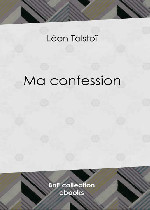
"Ma confession" (en russe : Исповедь [Ispoved']) est une courte œuvre de confession du célèbre romancier russe Léon Tolstoï sur le thème de la mélancolie, de la philosophie et de la religion. Elle a été écrite en 1879 et 1880. Le livre est un récit autobiographique de l'auteur à un moment de sa vie où il traverse une crise de mélancolie existentielle. Il décrit sa recherche de réponses aux questions profondes : « Qu’est-ce qui sortira de ce que je fais aujourd’hui ? de ce que je ferai demain ? Qu’est-ce qui sortira de toute ma vie ? » et « Quel est le sens de la vie ? », sans réponses pour lui et qui rendent la vie « impossible ».
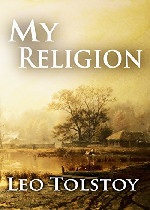
1885. The doctrine of simplification has many adherents in Russia, and when, some time ago, it was announced that the author of "War and Peace" had retired to the country and was leading a life of frugality and unaffected toil in the cultivation of his estates, the surprise to his own countrymen could not have been very great. In this book, he tells us how the decision was formed. He bases his conclusions on a direct and literal interpretation of the teachings of Jesus as expressed in the Sermon on the Mount.
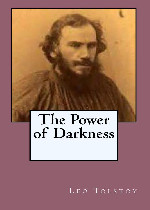
The Power of Darkness(黑暗的势力) 立即阅读
The Power of Darkness (Russian: Власть тьмы, Vlast' t'my) is a five-act drama by Leo Tolstoy. Written in 1886, the play's production was forbidden in Russia until 1902, mainly through the influence of Konstantin Pobedonostsev. In spite of the ban, the play was unofficially produced and read numerous times. The central character is a peasant, Nikita, who seduces and abandons a young orphan girl Marinka; then the lovely Anisija murders her own husband to marry Nikita.
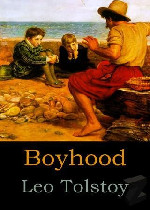
Written from 1852 to 1856, this autobiographical novel was Tolstoy's first publication. The early life of Nikolai, the son of wealthy landowner in Russia, is fully explored, slowly revealing this young boy's inner mind, relationships, and social standing. As he describes his tutor, angelic mother, aloof father, worldly brother, and later his moralistic friend, Nikolai displays a mind given to dreaming and a personality as complex as it is conflicted. As he grows and moves from his country home to his grandmother's mansion in Moscow, Nikolai also struggles at intervals to find a sort of moral balance, which affects his love, his education, and the type of man he might become.
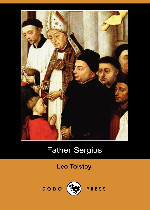
"Father Sergius" (Russian: Отец Сергий, translit. Otets Sergiy) is a short story written by Leo Tolstoy between 1890 and 1898 and first published (posthumously) in 1911.The story begins with the childhood and exceptional and accomplished youth of Prince Stepan Kasatsky. The young man is destined for great things. He discovers on the eve of his wedding that his fiancée Countess Mary Korotkova has had an affair with his beloved Tsar Nicholas I. The blow to his pride is massive, and he retreats to the arms of Russian Orthodoxy and becomes a monk.
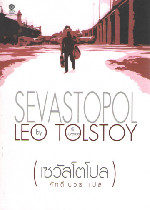
The flush of morning has but just begun to tinge the sky above Sapun Mountain; the dark blue surface of the sea has already cast aside the shades of night and awaits the first ray to begin a play of merry gleams; cold and mist are wafted from the bay; there is no snow—all is black, but the morning frost pinches the face and crackles underfoot, and the far-off, unceasing roar of the sea, broken now and then by the thunder of the firing in Sevastopol, alone disturbs the calm of the morning.
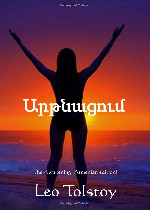
This masterful novel is a religious fable of sorts, written by the gifted Russian author Leo Tolstoy as a means of shedding light on the hypocrisy inherent in many aspects of organized religion in the nineteenth century. The book follows the plight of Russian aristocrat Dmitri Ivanovich Nekhlyudov as he seeks absolution -- both in the church and in his own psyche -- for a sin he committed years earlier.
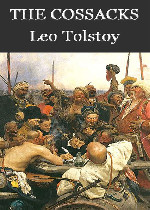
The Cossacks (Russian: Казаки [Kazaki]) is a short novel by Leo Tolstoy, published in 1863 in the popular literary magazine The Russian Messenger. It was originally called Young Manhood. Both Ivan Turgenev and the Nobel prize-winning Russian writer Ivan Bunin gave the work great praise, Turgenev calling it his favorite work by Tolstoy. Tolstoy began work on the story in August 1853. In August 1857, after having reread the Iliad, he vowed to completely rewrite The Cossacks.
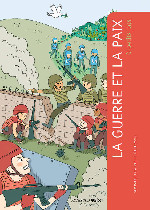
La guerre et la paix(战争与和平) 立即阅读
Guerre et Paix ou La Guerre et la Paix (en russe : Война и мир, Voïna i mir) est un roman de l'écrivain russe Léon Tolstoï. Publié en feuilleton entre 1865 et 1869 dans Le Messager russe, ce livre narre l’histoire de la Russie à l’époque de Napoléon Ier, notamment la campagne de Russie en 1812. Léon Tolstoï y développe une théorie fataliste de l’histoire, où le libre arbitre n’a qu’une importance mineure et où tous les événements n’obéissent qu’à un déterminisme historique inéluctable.